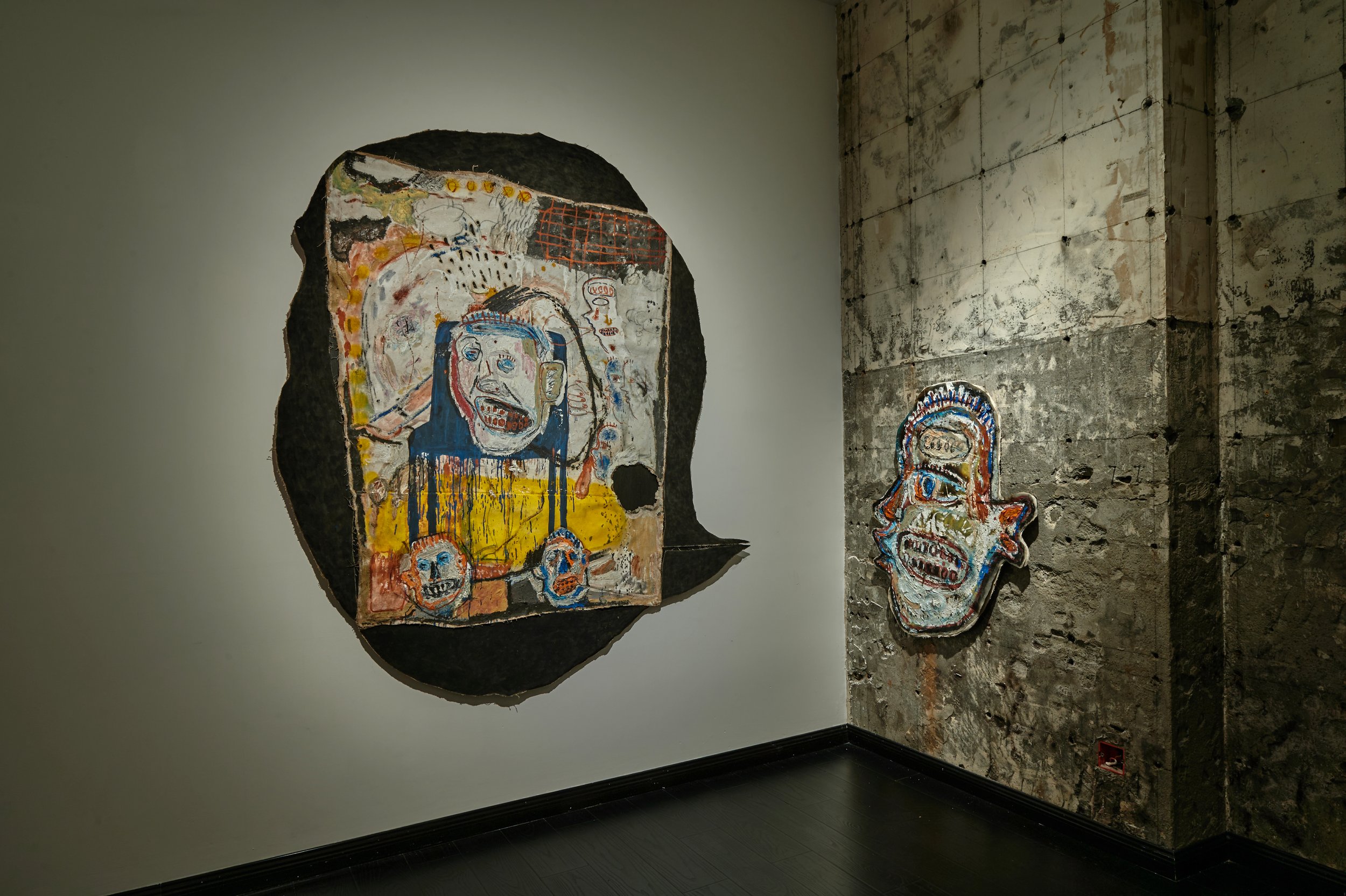Zhang Shijie : Growing
CHAPTER 6 is delighted to present the exhibition 'Growing' by Zhang Shijie. In the villages of Hubei, Zhang Shijie would use wooden sticks to draw on the yellow muddy land, while rags in the grass and discarded exercise books served as his sketchbooks. The wave of layoffs during the early millennium provided him and his brother with several abandoned factories, where they could explore freely away from the constraints of adults and the bustling world. These experiences created a surrealist adventure that remains within Zhang Shijie's vague memories of his upbringing. The accidental encounters of his youth and the sense of freedom found amidst the ruins profoundly influenced his aesthetics and artistic practices.
Incorporating numerous found objects, Zhang Shijie's art utilizes rough brushstrokes and graffiti-like lines on weathered cloth and wooden boards. His paintings do not adhere to a specific narrative; rather, they prioritize ambiguous interpretations and unconscious motivations. This fragmented and disjointed vision reflects our contemporary way of receiving information, to which the artist responds and actively engages. Many of the figures depicted in Zhang Shijie's works originate from his recollections of growing up and the appropriation of images from the real world. What unifies them is their symbolic representation of illness, trauma, and death. For instance, the face revealing teeth is derived from the packaging of tracheitis medicine that the artist frequently took during his youth, while the child seated on the chair is based on real-life news footage from Gaza. Following this thread, Zhang Shijie's works explore the interactive relationship between the artist's personal reinterpretation of his memories and the present-day reality.
The theme of this exhibition ‘Growing’ explores the complexities of personal development. The more vague something is, the more we want to figure it out, including memory. As individuals, we employ our present consciousness to piece together the fragments of memory, seeking to create a sense of wholeness. The ultimate truthfulness of these reconstructed memories becomes less significant as they become intertwined with our aspirations and desires for the present and future. Similar to Zhang Shijie, we may lack the ability to alter the past, but we possess the power to reshape the ambiguity in our own unique way in the present. It is through this transformative process that we can achieve profound personal growth and understanding.








